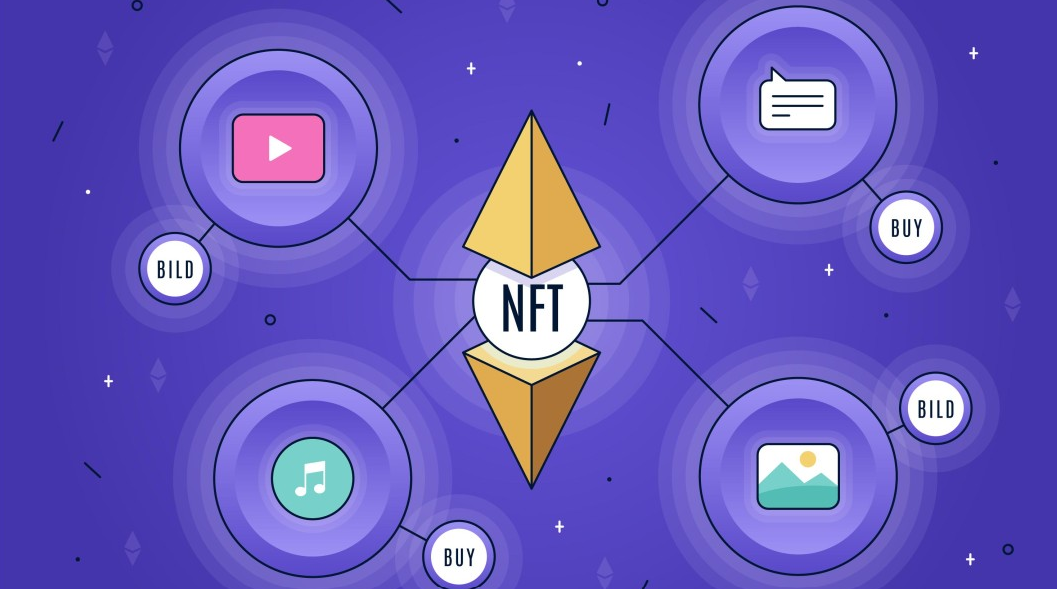Nowadays, small businesses are quite tenacious in their efforts to survive and expand digitally taking advantage of all available competitive advantages. One very important technology that businesses with less capital can use effectively is Web 3.0.
Through the use of the advantages of Web 3.0 as a small business, you can unlock possibilities, increase customer service, and improve your operations. In this article, we will explain how Web 3.0 can play a role in accomplishing the desired growth and success of small businesses.
Understanding Web 3.0 and Its Impact on Digital Business
First of all, Web 3.0 embodies an evolutionary leap concerning the way the Internet functions which is defined by the fact that there is a move toward openness, connectedness, as well as intelligence.
Therefore, this transformation uses technologies such as blockchain, artificial intelligence (AI), and the Internet of Things (IoT) as a base for developing decentralized apps and services. The coming of Web 3.0 means a lot to small entrepreneurs in how they interact and transact on the web.
Unlike the static pages of Web 1.0 or the user-generated content of Web 2.0, Web 3.0’s intelligent web is predictive and personalized, making it possible to offer unique, customer-centric experiences. Essentially, digital business can be thought of as being capable of mere data collection that is without value. It is Web 3.0 that comes with abundant and interoperable data across applications and services.
The idea of interoperability leads to the integration of different services, which in return enhances efficiency and offers new solutions in a small-scale business. This is what aids the decentralized nature of Web 3.0 as well which ultimately leads to the reduction of the number of centralized platforms, thereby decreasing the possible bottlenecks and vulnerabilities.
This decentralized stand preserves secure and private dealings hence, it helps to form a trustworthy bond between businesses and their clients. For small businesses that have enough power to orient in the digital atmosphere, Web 3.0 means everything: understanding and adapting to the new paradigm are obligatory things.
Digital Marketing is a practice that puts into use the latest technology to maintain a strong position in the digital space that keeps growing every day. Web 3.0 values are exceptionally critical for small businesses as far as innovation, client involvement, and remaining competitive in a digitalized world environment are concerned.
Enhancing Customer Experience with Personalization and AI
Web 3.0 promises small businesses the ability to improve customer experience through artificial intelligence and personalization, which aid in making the entire journey smooth, personalized, and satisfying.
In fact, by humanizing AI, one will discover an area where businesses are allowed to go deeper into predictive analytics, which gives them insight into customer behavior and preferences. By adopting this analytical approach the services and the products which are highly customized to the capabilities and abilities of each customer can be given, in turn, this will enable to enhancement of the overall user experience.
For example, a website selling clothes with the help of AI can collect data regarding a visitor’s clicking and buying patterns. This data will automatically lead the site to suggest the best clothes for the current visitor.
Furthermore, artificial intelligence-based chatbots and virtual assistants can make availabilities coupled with customer services, which are immediately accessible and can be reached on a twenty-four-in-seven basis for responding to questions and offering solutions.
This not only helps improve customer satisfaction by increasing the speed of interaction and making them personal with much smaller staff, but also helps the human staff focus on more complex customer service tasks.
Personalization, powered by Web 3.0 technologies, does not stop at product recommendations or customer service. It even spreads to customized marketing campaigns appealing to the personal tastes and hobbies of the audience, which drastically increases engagement rates and conversion opportunities.
Small businesses have an advantage in using AI and personalization technology to create exclusive experiences for customers, making them long-term customers and returning for future purchases.
Utilizing Decentralized Platforms for Greater Security and Privacy
The shift towards decentralized platforms inherent in Web 3.0 architecture offers small businesses a robust framework to enhance data security and privacy. Unlike traditional centralized systems where data is stored in single locations, making it susceptible to breaches and cyberattacks, decentralized platforms distribute data across a network.
This distribution mechanism as such is a guarantee of data protection, such that the chances of data being compromised are reduced drastically. Alongside it, these platforms utilize sophisticated encryption tools which augment further the safety of customers’ data and your business details.
For small companies, it is not just about securing their operations from external threats, but also about gaining their growing customer base’s trust who are increasingly aware of their data privacy issues.
Implementing these decentralized solutions empowers small businesses to demonstrate their commitment to protecting customer information, an essential factor in building long-lasting customer relationships in today’s digital economy. By making the de-centralization of security and privacy the priority, small enterprises can gain a competitive edge and be perceived as reliable businesses for data breaches are still commonplace in this digital landscape.
Leveraging Blockchain for Transparent and Efficient Transactions
This is where blockchain enters the play and becomes the backbone of Web 3.0, especially for small companies by bringing about a new level of transparency and efficiency. This new method of dealing with transactions materializes with a secure distributed ledger system, so every transaction has a unique identifier and each is encrypted and appended to the last one creating a secure and unalterable record.
Through automation in the financial services field, traditional local activities involving small businesses, such as cross-border payments and invoicing, will transition into a new form of involvement with the use of smart contracts.
The contracts coded with conditions and that self-execute also eliminate the laborious paperwork. These contracts autonomously perform the job of conditional enforcement upon compliance and verification of an agreement thus eliminating intermediaries and associated disputes. This tool in hand makes transaction processes blade faster, giving accuracy and dependability in business operations.
In addition, the unique security components embedded in blockchain tackle the security flaws commonly present in traditional financial systems. Through spreading transactions across the network of computers, blockchain outdoes hackers in that it is nearly impossible to break into transaction data.
The provision of security at this level sets in place the foundation for a relationship based on trust between small businesses and their various partners or customers. This, in turn, is foundational to long-term business relationships.
The introduction to the business practice of a blockchain is what is responsible for this small business advantage, reinforcing not only their operational efficiency but also their reputation for being credible and secure.
Expanding Market Reach Through Decentralized Marketplaces
A core feature of Web 3.0 is a decentralized marketplace, which allows small businesses to expand their customer base and access new markets. These intermediaries work without the traditional gatekeepers, thus establishing a direct connection between the sellers and the buyers. It not only decreases transaction prices but also creates an open and just marketplace.
For small shops, this means an opportunity to present their goods and services to a wider global audience without huge retail or e-commerce platforms overhead costs. However, these online marketplaces are also peer-to-peer which enables trust and authenticity, qualities that many consumers highly value.
Engaging in decentralized marketplaces not only helps to increase the visibility of small businesses but also empowers them to tap into the growing trend of decentralization in the digital business, which they can use as a competitive advantage and build a more flexible, adaptive business model.
Building Brand Loyalty with Tokenization and NFTs
Coin offerings and non-replaceable tokens (NFT) are the most recent trends in small businesses seeking to develop stronger bonds with their customer bases. Web 3.0 tech is so essential for branding and loyalty programs since it allows for many innovations and special offers.
Assets tokenization allows enterprises to implement digital tokens that can be used to identify discounts, rewards, or only access to special events or a limited-edition product of the company. Online loyalty program implementation does not merely make it easier to monitor and manage the distribution of rewards but also provides a secure and transparent way to trace key engagement and redemption activities of customers.
NFTs usher in a special dimension of worthiness to the spectrum of digital assets, thus enabling small enterprises to draw, mint, as well as peddle only one-of-a-kind, verifiable digital goods. Whether it’s a piece of work of art, a specific edition of merchandise, or an experience that is only available once, these types of tokens can provide a company with something that nobody else has as a competitive advantage.
Such uniqueness creates a savvy clientele with loyalty towards the brand, with them willing to invest in the brand at the same time. Furthermore, the intrinsic capacity of NFTs to increase their value over time can convert them into digital assets that customers choose to collect, moreover, the strong relationship between customers and brands can result due to this factor therefore, customers become loyal to the brand.
Using the implementation of tokenization and NFTs as a tool, organizers now have a chance to provide an innovative way to engage with their customers not only with offers but also on a deeper level, which renders traditional loyalty programs obsolete. This method not only reinforces customer retention but also portrays the brand as innovative and fit to the dynamic of a digital world that results in the creation of devoted customers who feel appreciated and connected.
Conclusion: Embracing Web 3.0 for Small Business Growth
With the introduction of Web 3.0, a revolutionary period for small to medium-sized companies comes, fueled by a variety of tools and chances for innovation, security, and customer engagement. Small enterprises form the front of a digital revolution wherein using Web3 functionalities could either be a bare existence or an extraordinary lift on the business.
With the adoption of decentralized platforms, incorporation of artificial intelligence for individualized bases, utilization of blockchain for effective transactions, and creation of a customer base using tokenization and NFTs, small businesses can evolve into what they are in a competitive market.
A new digital paradigm enables small businesses to run their work more applicable attending to customers, and ensuring their digital operations stay safe against cyber threats. Web 3.0-oriented entrepreneurs who are willing to adapt to these emerging technologies not only future-proof their businesses for the day and age to come but also achieve sustainable growth and success in the more connected and digitalized world.
Now is the time to do it—we need not only to follow but also to lead – stand at the forefront of this Web 3.0 and thus determine the future of business.


